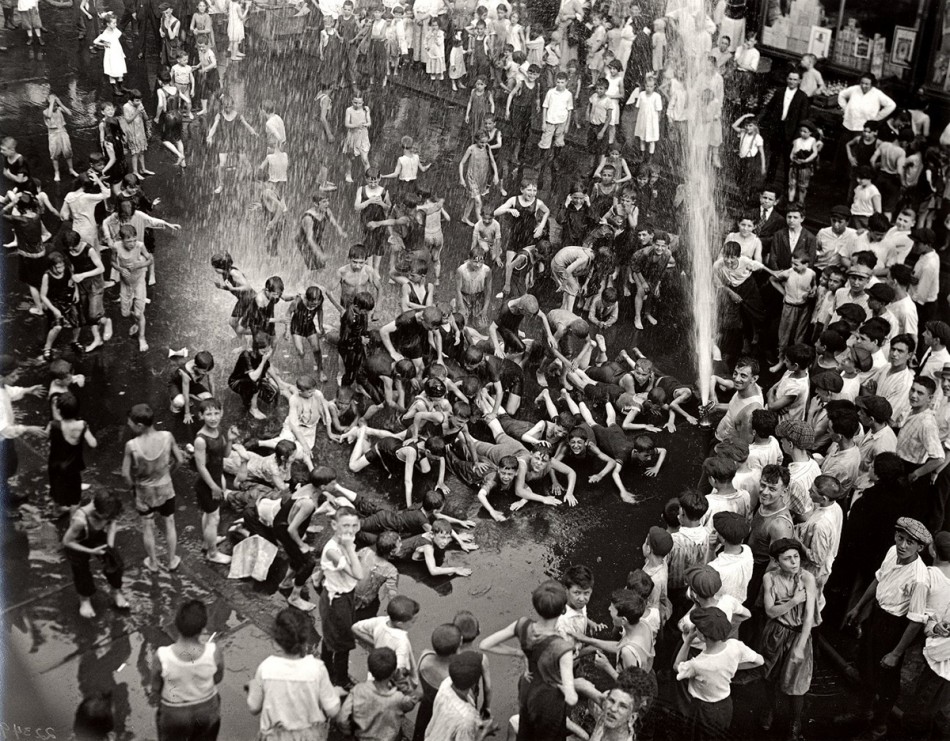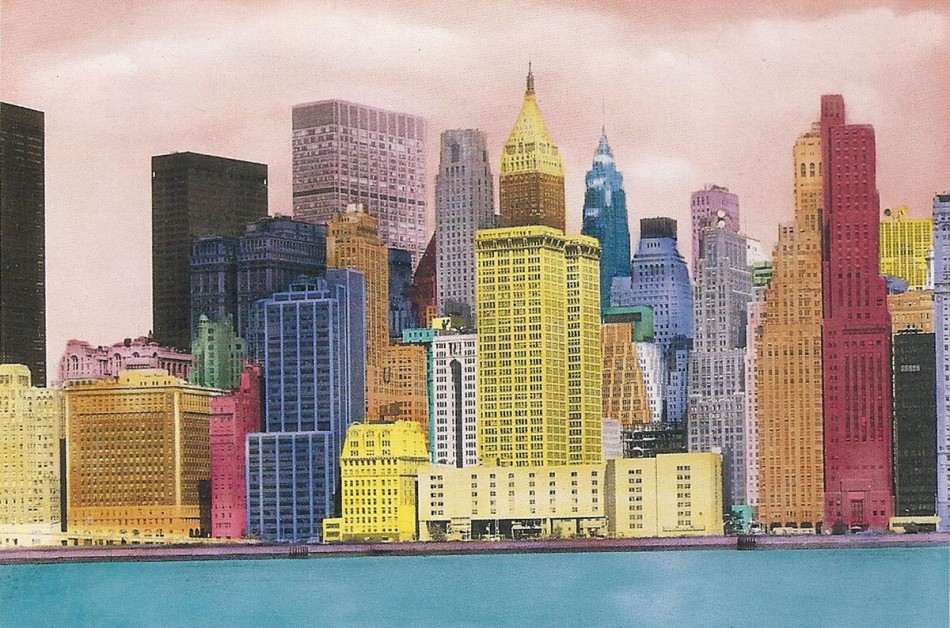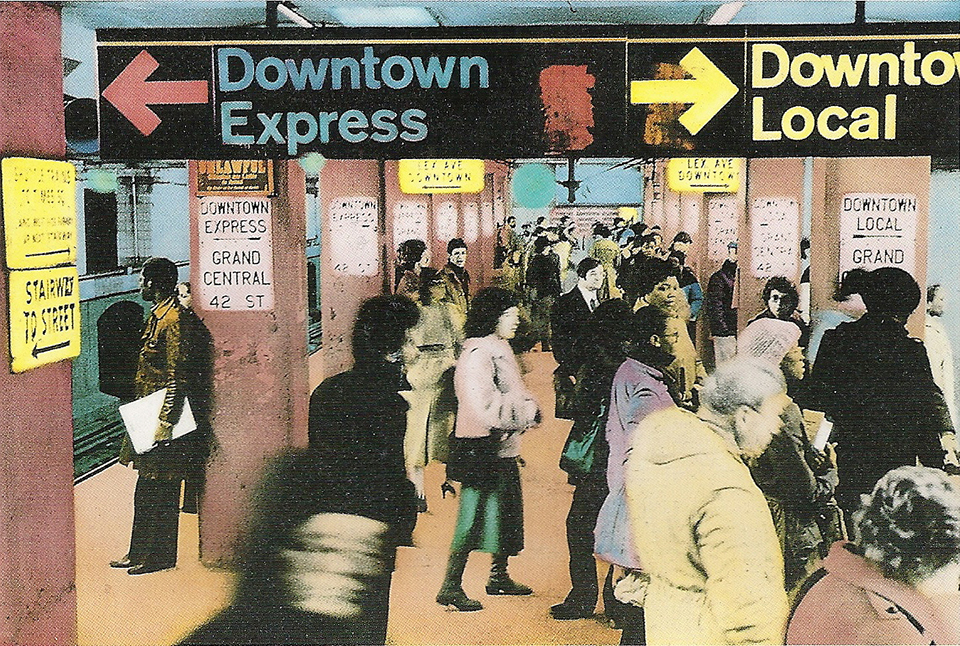Summer’s here and the time is right… for freezing indoors?
I knew summer was officially upon us as soon as I arrived at work last Monday morning. Two colleagues were perched awkwardly halfway up a stepladder. One was holding a drill, the other a raw piece of lumber, while each used his free hand to grip the large air-conditioner which teetered precariously between the window frame and the sidewalk six floors below. Beads of sweat sprung off both men, as if time was against them and their jobs (or very lives) hung in the balance. Before I knew it the large sash windows around me were slid shut — sssshhhhhhh-clunk! — and with that went my last breath of fresh air until late September. The bulky machine was plugged in and stirred into life, immediately releasing a wheezy drone. Their makeshift installation job having apparently taken hold, my colleagues slumped back in their chairs and purposely mopped their brows, as if by the skins of their teeth they had narrowly averted a minor local disaster.
By all accounts, it got pretty hot in New York this week. I wouldn’t know, since I now spend my days holed up in an air-tight chamber where the temperature hovers at a permanently tolerable sixty-eight degrees. On the other hand, the noise level is now akin to that on a construction site, though the rickety jackhammers cutting up Sixth Avenue are a far lesser disturbance. The aging AC unit’s grating, incessant din is so obtrusive that even on the occasions when I hear the telephone ring, answering it is pointless.
While I understand the importance of feeling comfortable in the workplace, I consider the air-conditioner a far from essential appliance. My office has no direct sunlight and seven windows which, when opened, create a pleasant through-breeze. On an especially hot day we might require, at most, a fan. In the AC’s defense, it is fair to say that I have not broken a sweat in over a week. Instead I now have to bring a sweater to work, an item of clothing that most would agree should no longer be a necessity come July. On occasions when I pick up the AC remote the whole office leaps up to monitor my actions lest I adjust the temperature or — gasp! — switch the thing off entirely. Maybe I’d have a greater degree of tolerance for the air conditioner if this wasn’t the fourth successive summer I’ve had to put up with the decrepit device, which each year is dragged out of hibernation rather than being put out to pasture.
For many of the city’s inhabitants, it seems no sooner has the depressing winter melted away than the sticky summer ahead becomes the target of their seasonal discontent. Most temper this sweat-related stress by cranking up the AC, which of course is designed to help suffering city dwellers beat the heat. Yet while air-conditioning may be a quick fix for this problem, to what extent does it also encourage it?
New Yorkers survived decades of hot summers with just loose clothing and Coca-Cola for comfort. But images of neighborhood kids frolicking under the gushing spray of the fire hydrant down the block are rooted in the middle of the last century, long before the air-conditioner came along to turn living spaces into temperature-controlled unnatural environments. Perhaps people defer to the AC simply because they can’t remember things any other way. Over the last fifty years this oversize, low-tech, energy-inefficient apparatus has become — along with the baseball cap and dip — something that America as a society has convinced itself it cannot live without.
I’m British, therefore hardly in a position to complain about warm weather. In England, the two days out of the year where temperatures might warrant air-conditioning hardly justify the purchase and installation of such an appliance. Elsewhere in Europe it gets scorching hot, but our continental cousins have come up with their own devices — such as wooden shutters and leisurely lunches — to combat the soaring afternoon heat. I’d never actually laid eyes on an air-conditioner until I arrived in New York. My wife and I had one at our old apartment which we took with us to our current place, where it has remained wrapped up in the closet ever since. As a foreigner living in a foreign land, I don’t wish to tell people how to live, but there are several advantages to enjoying your summer AC-free.
Not taking into account the needs of small children and the elderly, the air-conditioner actually presents more health problems than it alleviates. Exposure to temperature extremes can encourage allergies while doing no good whatsoever to skin, eyes or throat. More significantly, habitual AC use prevents any possibility of a natural acclimatization to warm weather, perpetuating the very problem it is intended to relieve. Precisely for this reason people feel the effect of the heat all the more as soon as they step outside — where the air-conditioner continues to make its presence felt in the form of that irritating drip that has a habit of landing on your shoulder instead of the sidewalk.
Unfortunately, this is not the only threat to the well-being of Manhattan’s pedestrians. So prevalent is AC use that it’s not uncommon for store-bought air-conditioners to be installed improperly. A few years ago an upstairs neighbor’s hefty appliance was destroyed after plummeting onto our second floor terrace (which, fortunately, we were not eating dinner on at the time). Last September a 67-year-old man was hospitalized after an AC unit fell six floors before bouncing off a canopy and hitting him in the head as he walked his dog down Second Avenue.
A more long-term concern is the enormous waste generated by continuous and unrestrained air-conditioner use. Studies have proven that the average AC unit wastes 40% of its input energy, while research suggests that air-conditioners use up over 15% of a home’s annual energy consumption. Needless to say, all of this puts a major demand on the electrical power grid. Just today both the AC and my computer abruptly shut down when a colleague attempted to use the office microwave. Luckily I’m not the one paying the Con Edison bill.
When I dared broach this issue with my boss his quipped response (“Go back to f***ing England”) suggested the matter was not open for discussion. It seems air-conditioning has become so deeply embedded in our culture that its necessity cannot even be questioned. Even elevator small-talk has been reduced to an impromptu appreciation of the air-conditioner’s savior-like qualities, and how it has once again rescued us all from an otherwise brutal summer of pure misery. New York’s latest heatwave should come as no surprise to anyone who’s spent a July here before, but if these same people were denied their precious AC I get the feeling they’d collapse not due to heat exhaustion but rather from sheer panic. Just what exactly are they so afraid of?
There are so many elements to the New York summer that make it such a pleasurable experience for the senses: a daily diet of gazpacho and watermelon, intermittent bursts of salsa wafting from an open window, the glistening patina of perspiration on tanned limbs… Like it or not, summer’s here and it’s going to get hot. So what if you sweat a little? It’s nothing a cold beer can’t fix.


